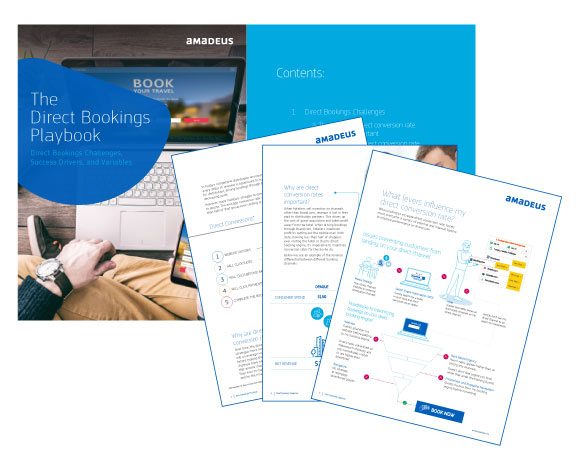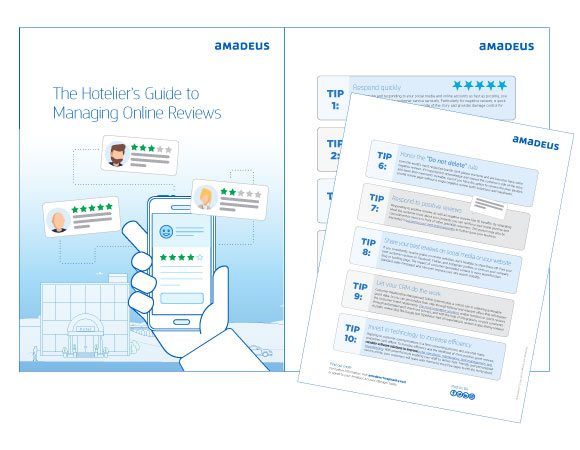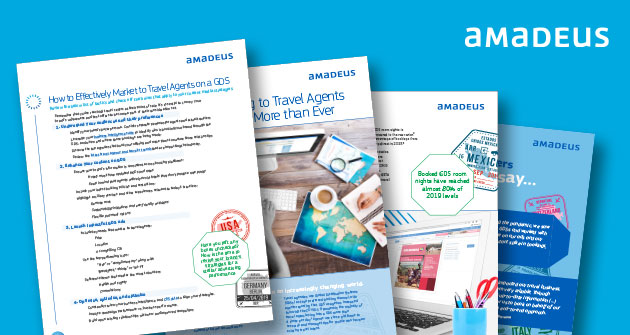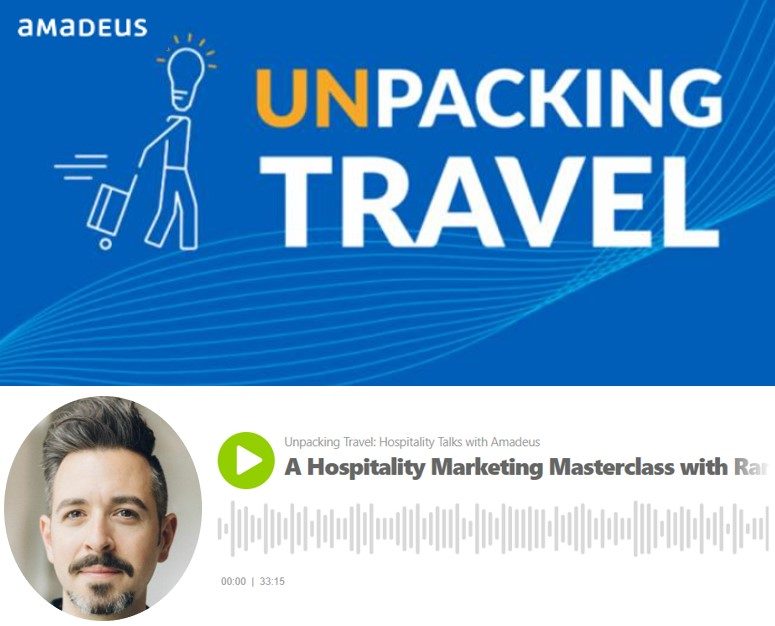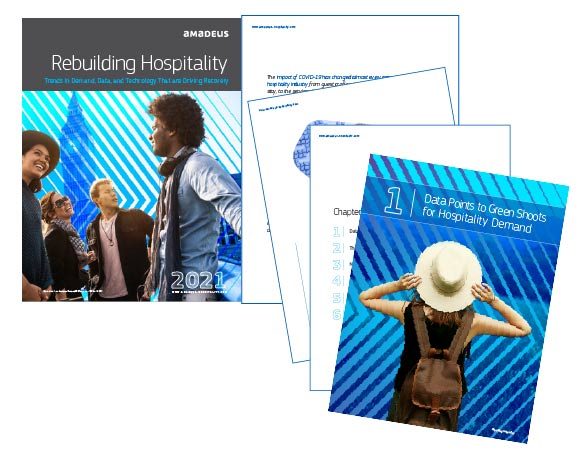DRIVE PROFITABLE DEMAND
The ultimate guide to hotel marketing
Marketing is critical to a hotel’s success since it serves as the foundation to promote your business, outperform your competitive set, and make a positive impression on customers.
Packed with trends, data points, and insights from industry professionals, this guide offers a one-stop shop for essential marketing strategies to drive and capture more demand, reservations, and revenue.
We’ll provide an all-encompassing rundown of hotel marketing, including an explanation of why it’s important, how to plan flexibly, and the key tactics to incorporate.

Hotel marketing
Hotel marketing
What is hotel marketing?
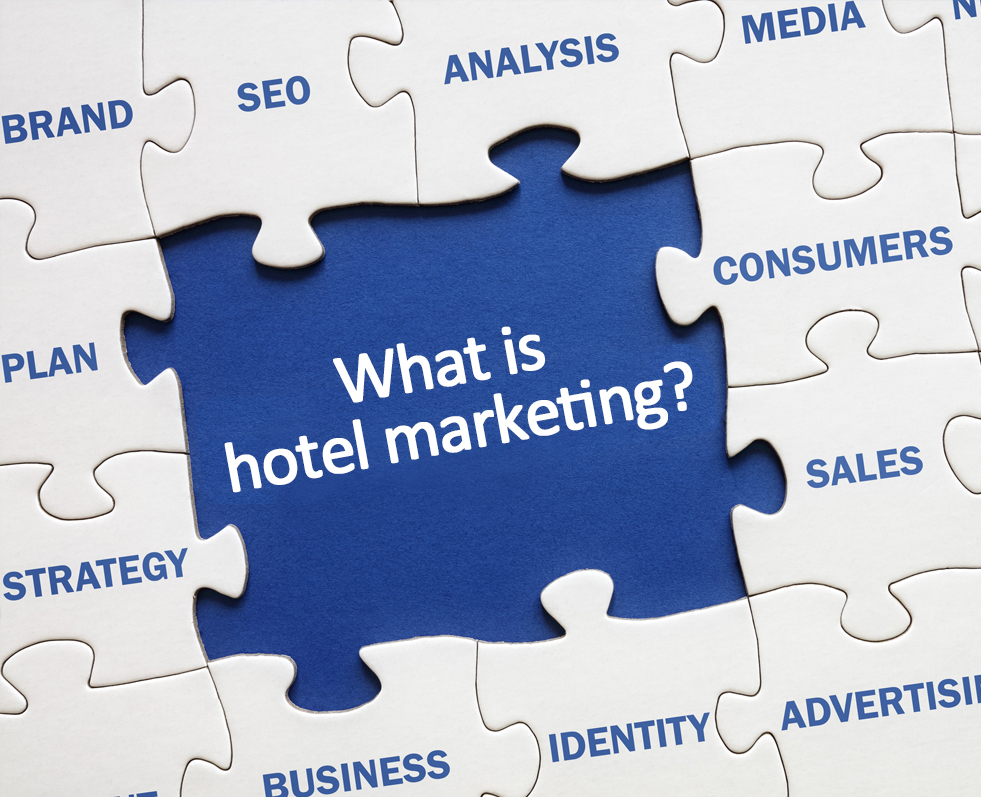
Hotel marketing is an overarching term referring to the different marketing strategies, tactics, and techniques that hotels use to drive awareness and revenue.
Hotel marketing strategies can range from visual design elements, to brand positioning, or tailored messaging to help hotels stand out from the competition.
Up-to-date technology and digital media campaigns also contribute towards building awareness and revenue for your hotel.
Online advertising is always evolving, and hotel brands must keep pace with the ever-changing digital landscape.
Across your website, social media, search engines, and other online marketing channels, your presence and messaging should feel seamless and consistent.
Hotel marketing
Why is hotel marketing important?
According to Amadeus’ Demand360® data, traveler confidence is growing and this trend will continue throughout 2023.
Your property should position and prepare itself to capture rising revenue opportunities. Hotel marketing helps advertisers in hospitality bring awareness and consideration of their accomodation offers and services to prospective guests.
And despite today's fluctuating demand, it’s necessary to build a solid marketing strategy that attracts, converts, and retains guests.
By conveying your unique selling proposition and implementing the right hotel marketing strategies, hotels can reach out to, interact with, and attract more potential customers.
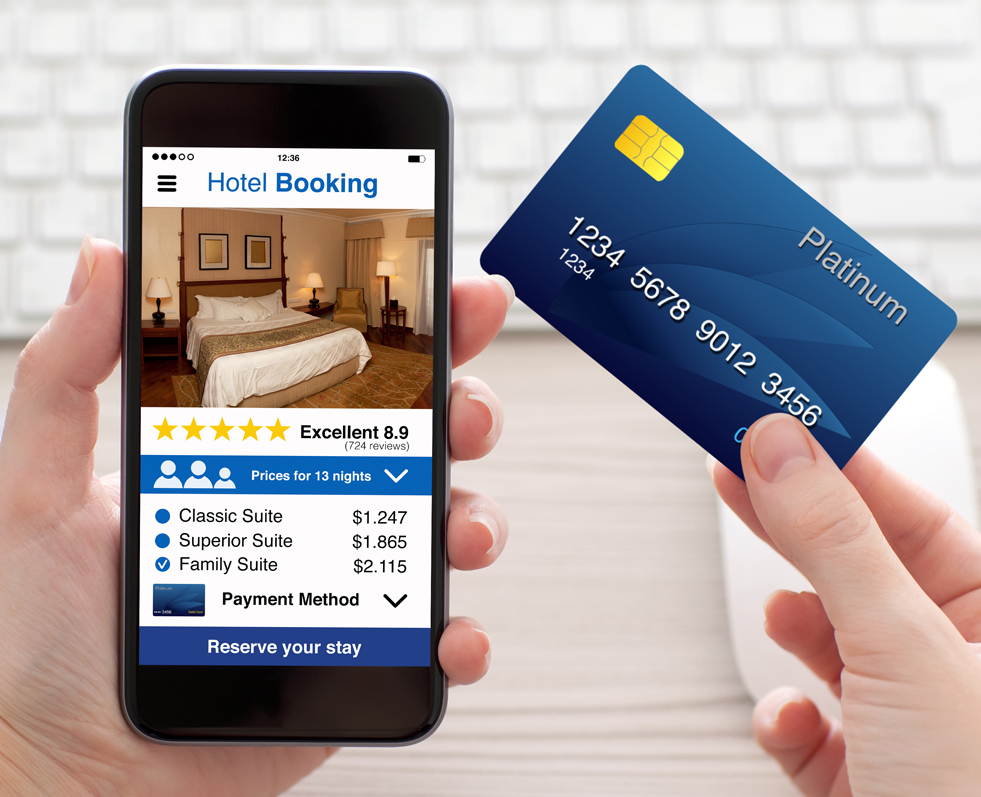
Hotel marketing
Successful hotel marketing strategies

Hotel marketing strategies play a prominent role in helping hotel brands drive customer engagement and stay top-of-mind.
Hotels can reach customers in different ways using a diverse range of activities to maximize its chance of securing bookings and achieving revenue targets.
To emerge stronger from the pandemic, your hotel should develop a multi-channel marketing approach.
You can start by building and optimizing a smart hotel media strategy for attracting leisure travelers as well as business from travel sellers.
Below is also a downloadable guide to help you build the ultimate hotel marketing strategy along with relevant research, actionable insights, and data points so you can make informed decisions and save time planning.
2023 Hotel Marketing Strategies eBook
In this eBook, we provide tips and tactics that hotel marketers can leverage when targeting travelers throughout the different stages of their journey:
- The Inspiration Stage
- The Planning Stage
- The Booking Stage
- The On-Site Experience Stage
- The Post-Trip Stage
Hotel marketing
Independent hotel marketing strategies
For independent hotels, it is critical to not only have an effective marketing strategy that draws guests in, but one that also converts them into loyal customers. This can be challenging in the competitive independent market, but there are ways to conquer this challenge and ultimately increase your return on investment. A successful marketing strategy starts with knowing your travelers on a deeper level, hearing their feedback, and engaging with them throughout the travel lifecycle to create a lasting impression. Here are 4 ways to ignite your independent hotel's marketing strategy.
In addition to competing with existing independent properties, branded hotels and alternative accommodations, each local market exhibits its own set of unique challenges, and it may seem impossible to find solutions for them all. With that in mind, it is advisable to conduct a SWOT analysis. Conducting a SWOT analysis of your competitive set, can inform your overall business strategy, build your brand, and enable you to establish a solid foothold in your local market. Find out more about the benefits of conducting a SWOT analysis for independent hotels.
Finally, independent hotels need to establish the right mix of direct and online booking channels to maximize revenue and take full advantage of any projected market growth. They should explore all their distribution options, including how these channels can benefit their business, to create a multi-faceted mix that meets the unique needs of their market. The best distribution strategy enhances spend, reach, and results. Optimizing your channel mix should be an ongoing process - especially in uncertain times. Our guide to new independent hotel openings covers how to implement independant hotel distribution channels along with launching promotions and loyalty programs.
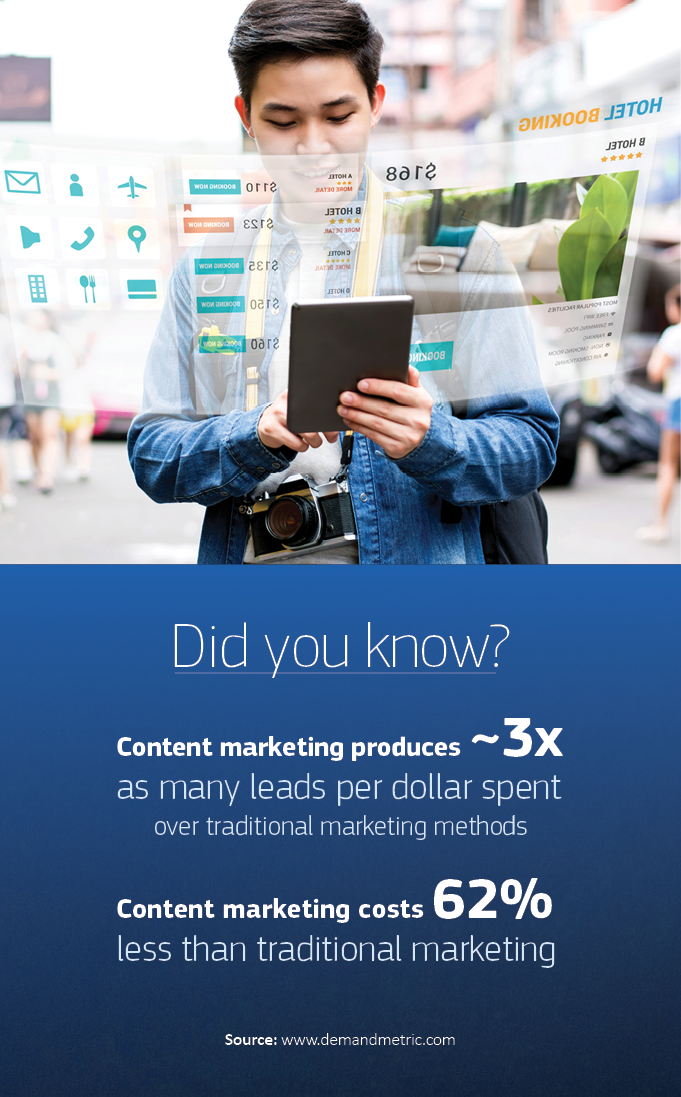
Hotel digital marketing strategies and distribution channels
Let's embark on an engaging journey into the landscape of hotel digital marketing methods, discovering the different channels and strategies that will allow you to broaden your customer reach, maximize profits and increase bookings.
Hotel digital marketing strategies and distribution channels
1. Hotel direct / website marketing

The hotel’s website is generally the most profitable for online booking. Direct bookings are essential because as hotels struggle with rising costs, they are redoubling efforts to have customers book direct to cut out not only the fees associated with Online Travel Agencies (OTAs), but also the relationships OTAs are able to form and leverage with the customers who are loyal to them.
While the channel mix continues to evolve globally, hotels now have the opportunity to optimize the number of direct bookings and potentially grow its percentage of the overall channel mix equity through direct hotel bookings. To bring greater balance back to the online booking equation and improve the performance of direct channels, there are several ways you can guide shoppers to your direct channel. Combating issues with rate parity, employing a robust metasearch strategy, developing sophisticated keyword search and other SEO strategies, and launching omnichannel campaigns are all great ways to shift more potential guests to Brand.com.
Once you have a greater volume of guests in your direct ecosystem, it’s key to deliver a more seamless user experience, engage them with special offers, use remarketing to capture guests who have abandoned the booking process, and send personalized follow-up messages and offers.
Mastering the Art of Direct Booking
Download this eBook to ensure:
- Your website stands out against the competition.
- To leverage practical direct booking strategies.
- Your guest´s first reservation channel is Direct.
- To personalize the whole booking experience.
Hotel digital marketing strategies and distribution channels
2. Hotel SEO marketing
The first step in increasing direct bookings for your hotel is to drive more search traffic to the hotel’s website (Brand.com) through hotel SEO marketing, or Hotel search engine optimization. This refers to the process of optimizing and improving a hotel’s website so that it ranks higher in search engines (such as Google, Yahoo, and Bing) and consequently, gains more online exposure.
An effective digital presence strategy should begin with positioning your hotel’s website on online search engines to win more visibility and maximize direct booking revenue, while beat the competition to the top spot in search results. To attract more guests to your hotel, you need to make sure your website appears at the top of search engine results when people search for hotels in your area. This requires optimizing your website for search engines through techniques such as keyword research, meta tags, and content optimization. Make sure your website is also mobile-friendly and easy to navigate.
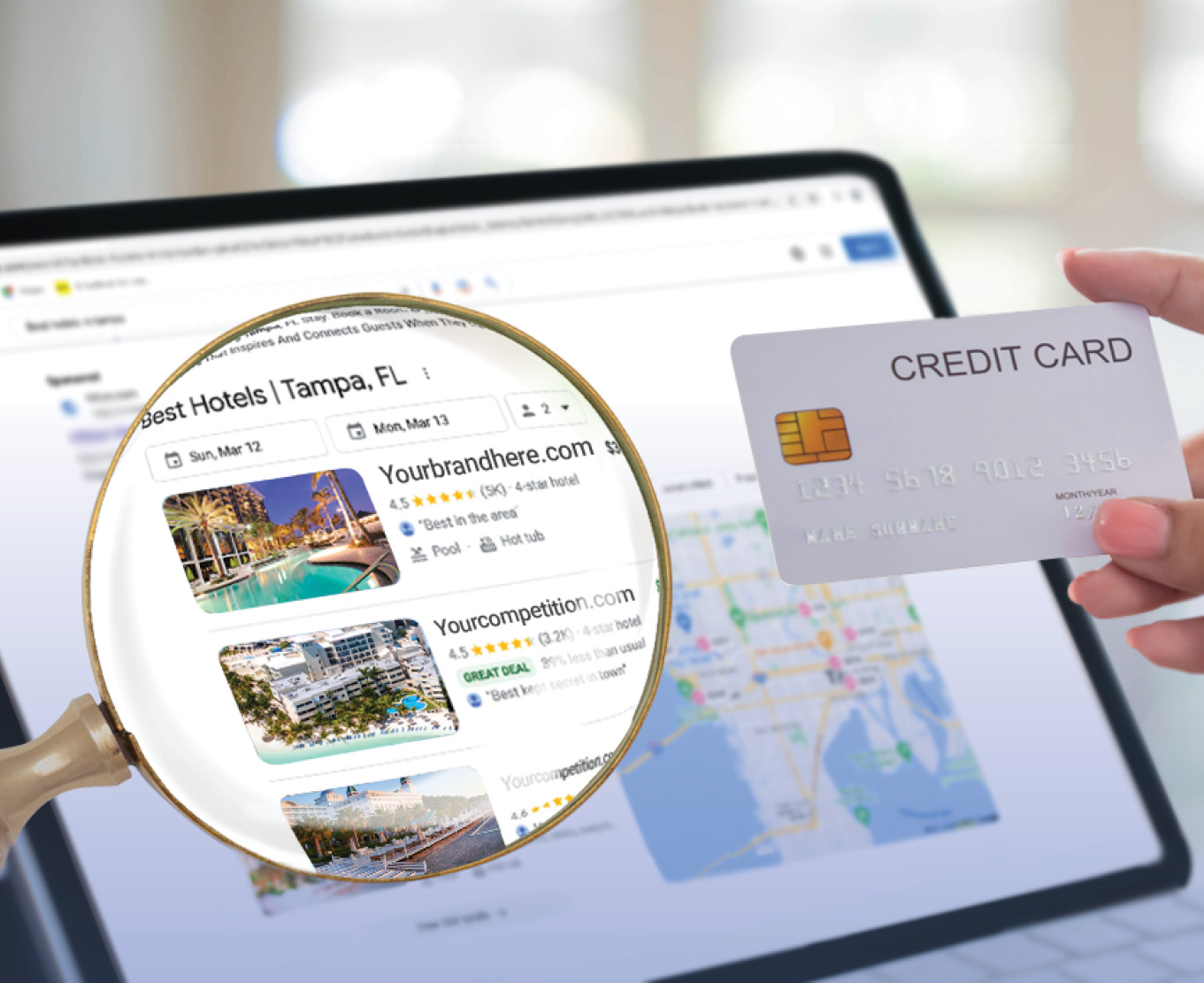
Check out our SEO Best Practices for Hotels infographic for key steps we recommend in order to enhance your property’s presence in organic searches. The checklist can be used to identify areas of improvement for your property or chain’s SEO strategy. Although SEO works with organic search and is a free traffic source, there is a certain cost associated with the work, effort, budget, and time put into SEO itself.
To learn more about hotel SEO marketing, visit our dedcated page: A Hotelier’s Quick Guide to Hotel SEO Marketing: What Is It and How Does It Work?
Hotel digital marketing strategies and distribution channels
3. Hotel paid advertising strategies
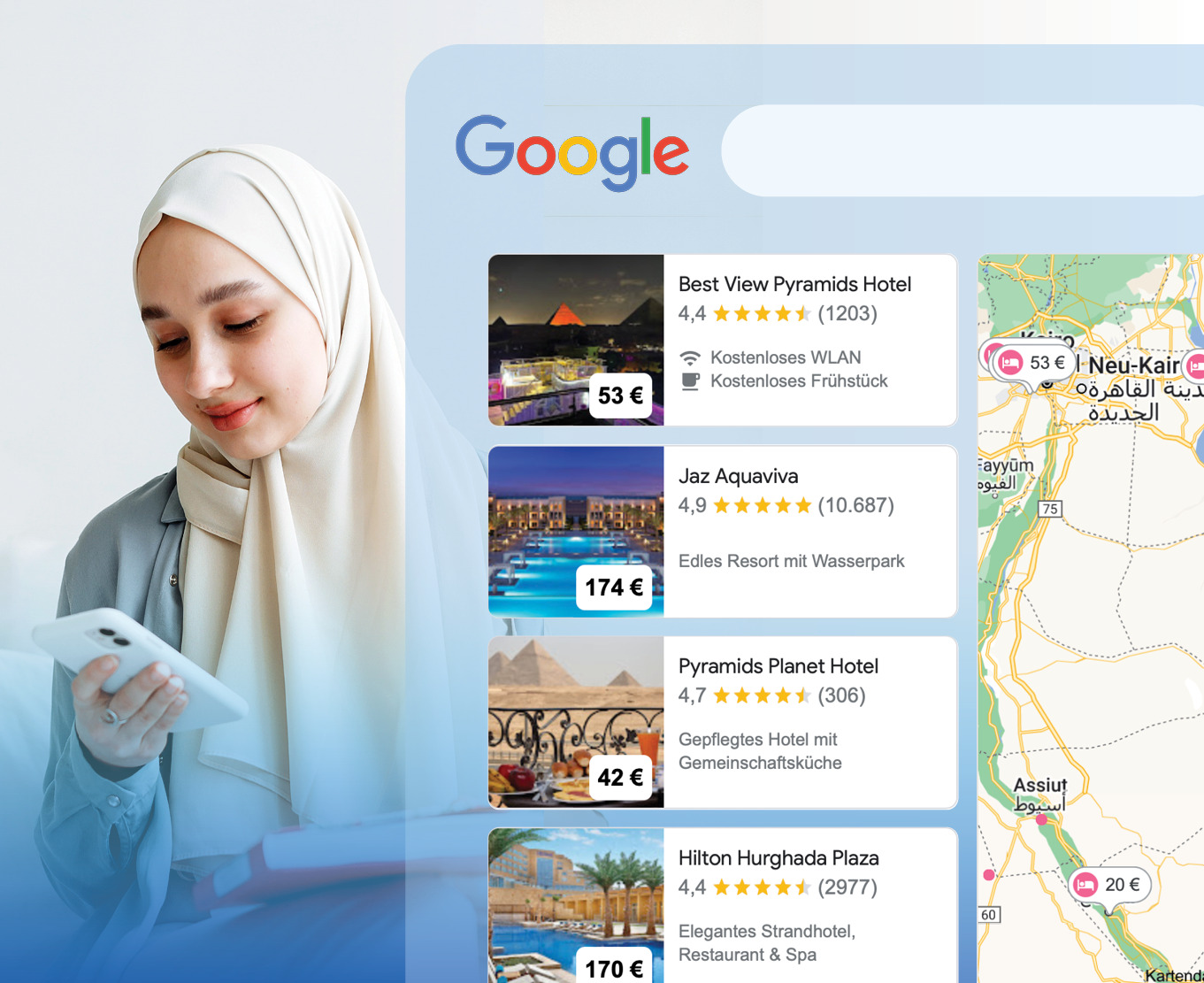
Maintaining paid digital advertising isn’t just important now. Absent any investment, you’ll concede market share to competitors and OTAs.
A highly-targeted pay-per-click ads strategy enables your hotel to pick up any demand through search engines and cement your position in your market, before competitors and OTAs begin aggressively threatening your share. Find out more about how to increase hotel bookings with pay-per-click advertising.
Working on essential hotel search engine marketing tactics and building out automation can help you capitalize on rising demand, get your hotel ready to capture it, and continuously optimize to respond to the market.
A shift to automated ads and other dynamic formats that deliver relevant creative ads will also help you scale your advertising efforts where they are most successful and rapidly adjust to changes in your market demand to get the most out of your dollar.
Automating your hotel ads is the best way to ensure they show against relevant queries as people are searching for hotels.
- Dynamic Search Ads (DSA) quickly generate a clear, attractive headline that links to a relevant landing page on your site when potential guests search for terms closely related to titles and frequently used phrases on your website.
- Responsive Search Ads (RSA) adapt your ad’s content to match potential customers’ search terms more closely.
4. Hotel social media
Hotel social media is a powerful tool as it plays a key part of the purchasing process, with the research stage influencing decisions more than ever before. For hotels, it refers to the actvity of creating social media profiles for your hotel on popular platforms such as Facebook, Twitter, and Instagram, and regularly post engaging content that showcases your hotel's unique features and amenities.
Following the right social media marketing strategies is important, because most travelers today turn to that channel when choosing the hotel for their next stay. It can encourage guests to share their experiences using hashtags and geotags to increase visibility. As much as 42% of consumers say social media influences what and where they’re buying.
Take Instagram for example - with millions of potential bookers, it’s clear that it needs to form a clear part of any hotelier’s marketing strategy. Here's our article on how to increase your hotel visibility through Instagram.
Leveraging social media influencers can effectively market your hotel, offering potential guests a captivating narrative from a trusted source. These influencers, with their extensive reach and engagement, can provide an intimate perspective of your establishment, stirring enthusiasm for a potential stay. Partnering with such influencers can generate buzz and drive business growth.

Brand advocates, passionate customers familiar with your brand, can significantly enhance your social strategy. Their authentic recommendations and social media presence can amplify your hotel's visibility. Empowering these advocates to share your hotel brand story is crucial.
Online reviews are a key marketing tool, providing feedback and influencing your hotel's reputation. Managing responses on platforms like TripAdvisor, Yelp, and Facebook directly affects sales. These reviews also help identify operational improvements and refine marketing strategies. Resources like our 'Hotelier's Guide to managing online reviews' can assist in monitoring your online presence.
The Hotelier’s Guide to Managing Online Reviews
Download your free copy to receive:
- 10 best practices for responding to online reviews
- 3 response templates for email or online reviews
- 2 response templates for social media reviews
Hotel digital marketing strategies and distribution channels
5. Metasearch for hotels
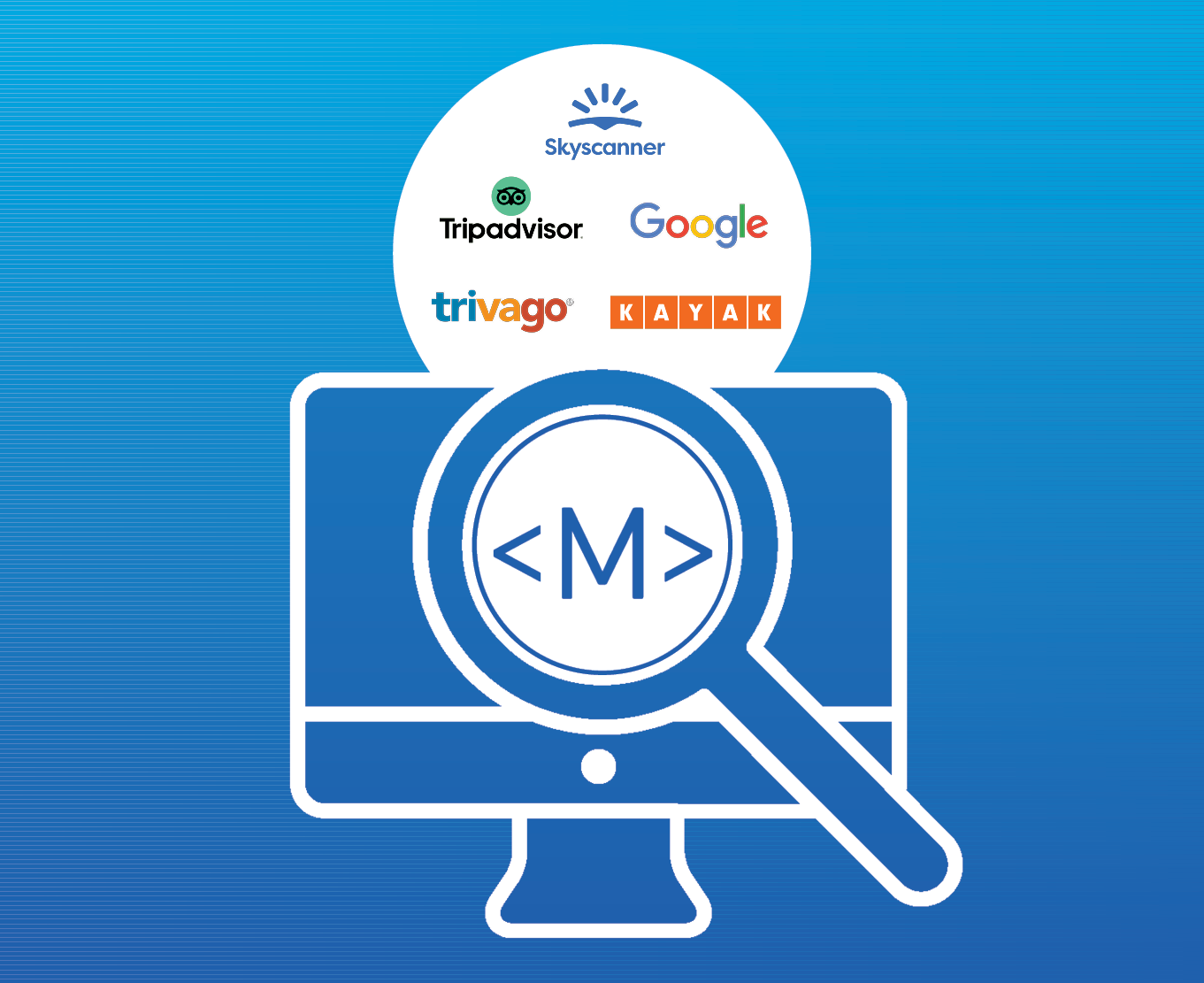
Metasearch engines for hotels are search engines where third-party suppliers such as OTAs, brands, and independents are aggregated and compared. These channels have gained popularity in recent years due to their ability to simplify the online shopping process and list competitive hotel prices. Google, TripAdvisor, Kayak, Trivago and Skyscanner all offer metasearch.
Metasearch engines allow hotels to:
- target the right guests with Google audiences for search (in the case of Google)
- retrieve data from multiple OTAs and other sales channels (including hotel websites)
- present booking options to potential guests simultaneously for easy comparisons
- ensure their website (Brand.com) appears as an attractive option through rate parity
The world of metasearch is more dynamic than ever and by building a digital media plan that leverages it as a key strategy, hotels have an opportunity to capture a greater share of the market. Here are some of the 3 recent Google Metasearch features to support a hotel’s potential to drive bookings and maximize revenue in an evolving online ecosystem and how your hotel can incorporate them into your digital marketing strategy.
By building a digital media plan that leverages metasearch, hoteliers have an opportunity to capture a greater share of the market as demand grows.
Hotel digital marketing strategies and distribution channels
6. OTAs for hotels
Online travel agencies (OTAs) such as Expedia and Booking.com can help you reach a wider audience and increase bookings. Travelers gravitate towards OTAs for the ease of comparison shopping as well as a relatively smooth booking experience. OTAs connect them to a full breadth of travel providers and hotel inventory to consider for their next trip. Visit our complete guide to online travel agencies in 2023.
Sites such as Booking.com, Expedia, and Priceline typically spend millions of dollars on marketing annually, providing your hotel with advertising coverage that would be difficult to gain otherwise. OTAs are often conversion-oriented and user-friendly, allowing travelers to compare multiple options on the same screen. There are many OTAs available, so choose the one that best speaks to your target audience.
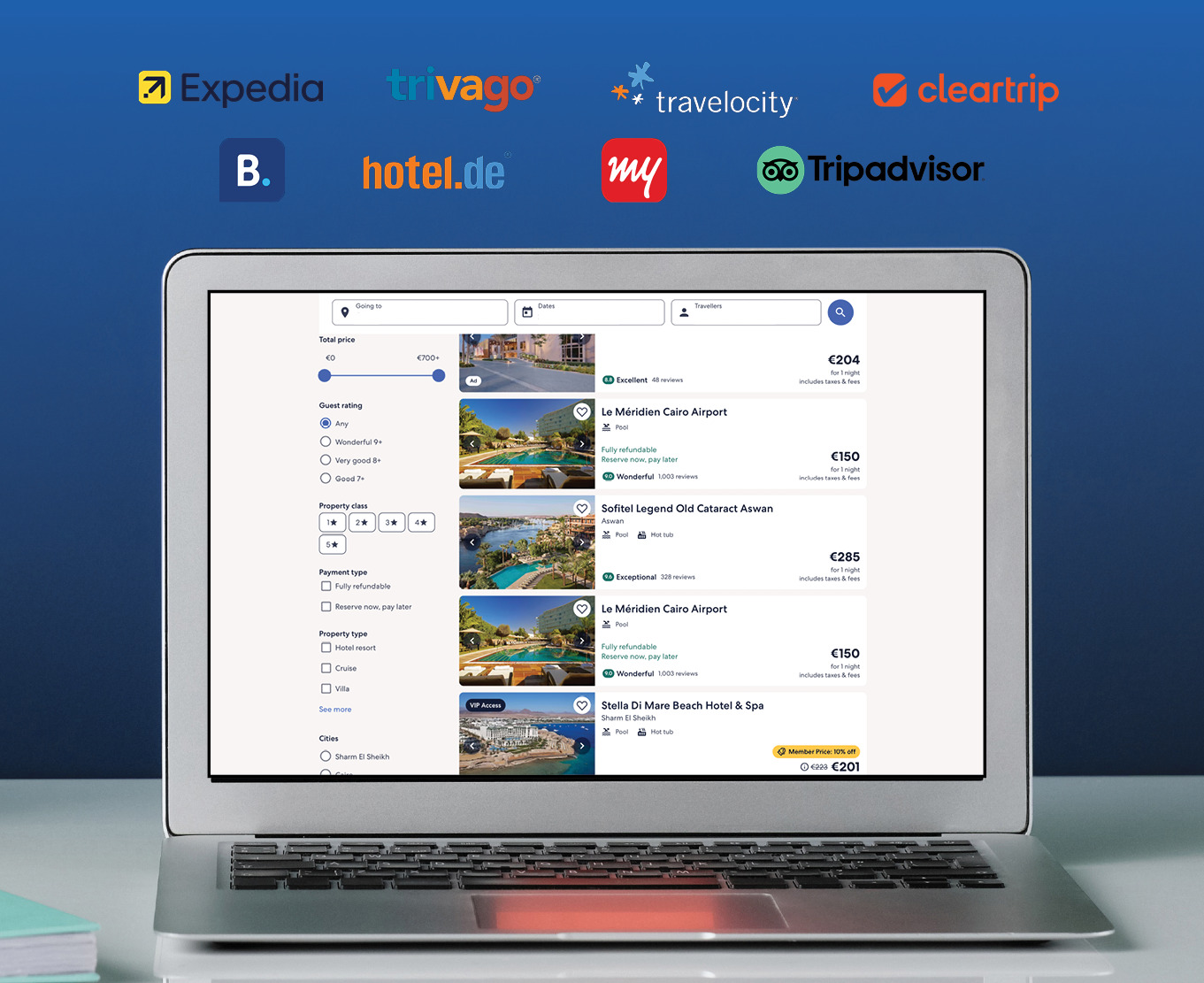
Online Travel Agencies (OTAs) dominate the online booking landscape due to their technological prowess, understanding of online shopping strategies, and loyalty programs, enabling travelers to self-serve from research to booking with a great user experience. However, while OTAs are vital business partners for hotels, they can be less profitable, hence a balance between OTA and direct bookings is necessary for hotels to maximize revenue and capitalize on projected market growth.
Some hotel companies tout the strength of their brands and see OTAs as just another distribution channel, while others see them as a threat to their businesses, this is why hotels must ensure they maintain rate parity, to drive revenue in a competitive market. While OTAs have been and will continue to be crucial business partners for properties of all shapes and sizes, they are often a less profitable booking channel for the hotel.
Hotel digital marketing strategies and distribution channels
7. Travel sellers and Global Distribution Systems (GDS)

Travel seller or GDS bookings remain an overlooked yet lucrative source of revenue for hoteliers since they are frequently shopping and booking on behalf of clients. Hotels should capture travel seller GDS bookings and try to establish themselves as a known entity within the GDS marketplace so that agents are willing to recommend and sell your hotel to their customers.
Pre-pandemic, the total number of hotel bookings on global distribution systems was increasing year-over-year with no signs of slowing down. Now it’s time to think about how you can boost your performance on this channel.
Today more than ever, the partnership between hoteliers and travel sellers and improving relationships with travel sellers are key to increase bookings. For instance you can share relevant information about your property in the GDS to catch the eye of travel sellers or make your property more attractive with features like flexible cancellations, room service, and contactless check-in.
Travel sellers play a key role in connecting hotels and travelers, especially given the increasing flexibility and changes that travelers require. This positions them as a valuable resource as they are experts in handling issues like sudden changes to their bookings. rebooking, while helping businesses more effectively manage and update corporate travel bookings and policies for safety and compliance.
Hotel digital marketing strategies and distribution channels
8. Hotel GDS media
Hotel GDS advertizing allows hoteliers to optimize their presence and drive revenue through targeted advertising served directly to travel sellers during the shopping and booking process by displaying priority placement, text, and display campaigns.
Hotel GDS advertising is a valuable channel to help build visibility and show travel agents why they should book your property over the competition.
Actively target travel sellers while they search for a property in your market and offer a bonus commission when possible. Here are 5 ways to improve your relationships with travel agents.
With more emphasis and importance placed on support from travel agents, now is a good time to restart your GDS media campaigns to drive and capture increasing demand.
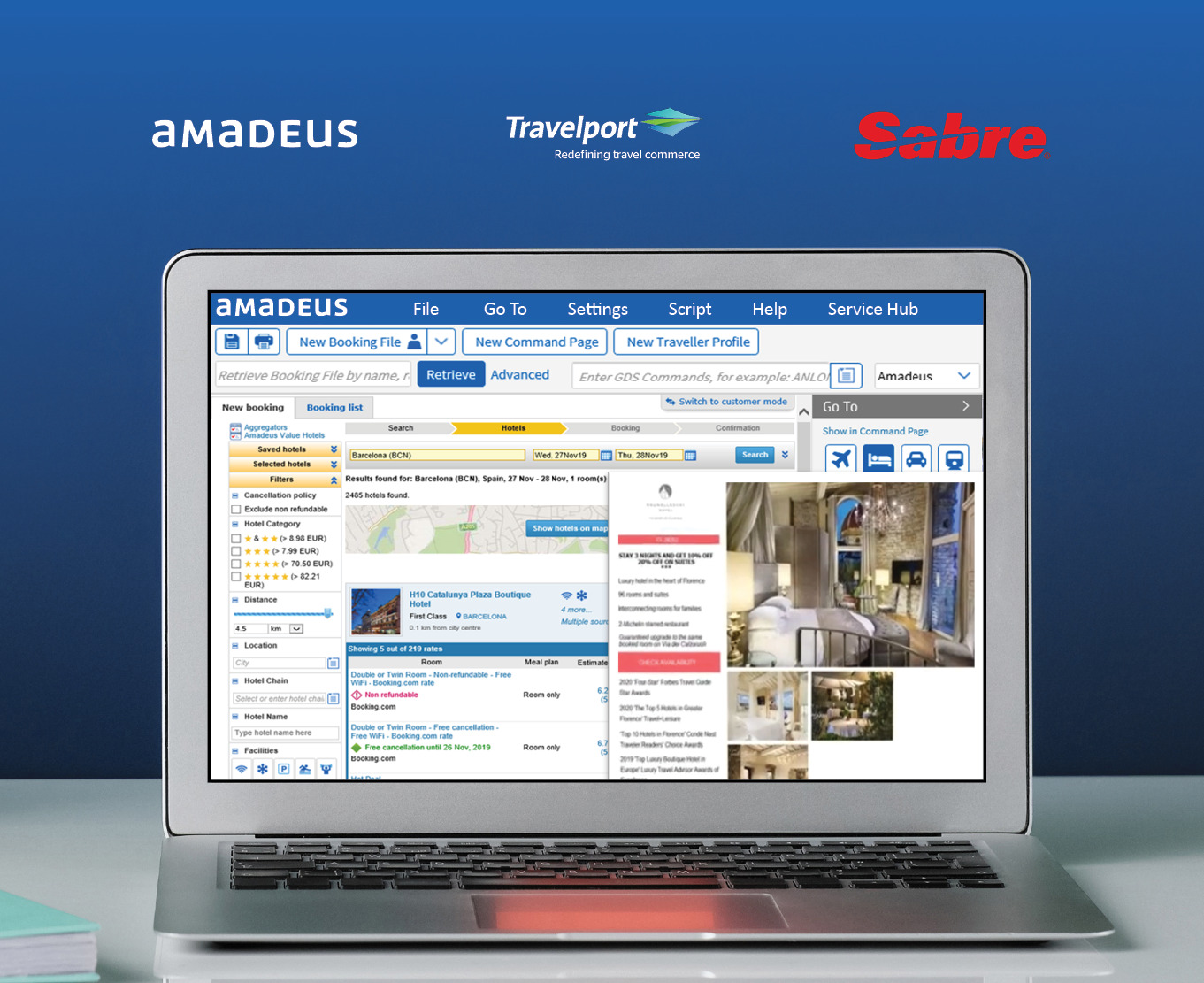
Hoteliers can significantly grow GDS hotel bookings for their properties that are preferentially placed by providing them with increased visibility in comparison to those properties that are not featured.
There are different formats for each placement:
- Graphical Banners: The help visualize promotions, product and/or services, highlighting the main features of the offering.
- Text: Text messages are cohesive with the page content, assimilated into the design, and consistent with the platform behavior. Promoted text messages appear upon log in and search results.
- Featured / Preferred Content: Preferencing gives your hotel preferred placement over non-subscribers.
- Video: Use videos, virtual tours, and other interactive materials to show value to travel sellers.
Download this eBook to learn more about how to:
- best navigate 2023: Trust travel agents for seamless trip planning.
- leverage the skyrocketing post-COVID GDS usage.
- optimize your brand on GDSs to reach agents effectively.
- stay ahead with our latest travel agency trends report.
Master GDS marketing with our actionable guide & checklist.
Hotel digital marketing strategies and distribution channels
9. Hotel Email Marketing

Hotel email marketing is also an essential strategy for hotels to promote their services and increase bookings through targeted and personalized email campaigns. By using email marketing, hotels can connect with potential guests, build customer relationships, and drive revenue growth. Choose from our carefully crafted hotel email templates for a consistent and polished guest communication strategy.
For instance, are you looking to increase your hotel's occupancy rates during low season? Hotel email marketing can be an effective channel to adress that.
In our dedicated article on Hotel email marketing, we explore the power of targeted and personalized email campaigns in connecting with potential guests, building customer relationships, and driving revenue growth for your hotel. Get ready to take your marketing strategy to the next level and boost your bookings like never before!
Data-driven hotel marketing strategies
Data-driven hotel marketing strategies
As hotel occupancy rates are increasing and global demand is growing, hoteliers are presented with the challenges of repositioning, retargeting, and reviving their respective brands to meet the needs of emerging demand in 2022. In this section, we uncover how hotels can undertake more data-driven strategies to face these new challenges.
Data-driven hotel marketing strategies
Forward-looking market insights
An important lesson that has emerged from the pandemic is the need for forward-looking business intelligence data.
Predictable travel trends and booking behaviors were entirely disrupted in early 2020 and 2021, invalidating the use of historical data to base hotel strategies such as pricing.
Although old data can still provide useful context, real-time and forward-looking hotel occupancy data should now take center stage in your pricing strategy.
It is important to rethink the way you do business now and, in the future, because you’re facing a travel environment that requires you to continuously evaluate evolving market data while assessing which channels perform best.
How to Fuel Your Media Strategy with 360° Data
In this guide, we uncover how to:
- leverage data from different platforms
- take stock of your position in the market
- compare yourself against your competition
- build a robust data-based media strategy
Data-driven hotel marketing strategies
Channel performance data
Another important lesson that has emerged from the pandemic is that the creation of a cross-channel approach must be part of your recovery plan. For instance, you may notice that in some markets, bookings through travel agencies are increasing as travelers are looking for experts to navigate the uncertainty around ever-changing travel regulations.
As you monitor the performance of channels shown to influence demand to your property, it becomes clear that the need to establish a successful multi-channel distribution strategy will be essential.
By having clear visibility on shifting traveler booking patterns and behaviors on each channel, you can ensure relevant content is available and easily found across different booking channels and confidently establish pricing strategies accordingly.
Once you understand all areas that impact expected demand, you should be targeting your audience across an effective mix of channels. Hoteliers must thus plan for recovery through a data and omnichannel based approach.
Understanding where business is coming from allows you to better allocate resources accordingly and shift marketing efforts to the most profitable channels. Here are 4 tips to help you improve your marketing mix with hospitality business intelligence.
Data-driven hotel marketing strategies
Destination-based data
Hoteliers now also have the chance to better identify and engage consumers who are actively looking for a room in their area by leveraging data such as Google Search information for their destination, including in-market audiences and detailed demographics.
Through these insights, you can identify travelers who are likely to book based on hard data and craft more relevant messaging and incentives that make a larger impact on your target audiences. Hoteliers can achieve this by targeting the right guests for their hotel with Google’s audiences for search.
Data-driven hotel marketing strategies
Guest journey data
Finally, analyzing the digital experience along the traveler journey remains critical to acquiring the next generation of digital-savvy customers.
A hotel guest journey allows you to map all the steps or touchpoints your guests go through during their booking process or website navigation. These online interactions leave a trace of data behind, that hotel brands can in turn use to understand their guests' needs and desires, and anticipate their expectations and personlize their web experience.
In the below Hospitality Marketing Masterclass episode of our Unpacking Travel podcast, we discuss with Rand Fishkin, founder and CEO of SparkToro, how the guest journey has been evolving from search to post-stay, and how hoteliers can maximize both their marketing efforts and their budgets accordingly.
Hotel marketing news
Hotel marketing news
Online advertising activity is always evolving, and hotel brands must keep pace with the ever-changing digital landscape, such as new technologies and regulations.
Advertisers in particular are seeing an increased number of compliance obligations, regulations, and also the emergence of new technologies that are changing market dynamics.
Hotel marketing news
What is the digital marketing regulatory framework and why does it matter?
Over the last two decades, we have witnessed a true explosion of marketing on the internet and it has become the fastest means of advertising of this decade.
The rise of online marketing grew from an era of little consumer tracking capabilities to almost unlimited access to tracking user data across the internet.
This evolution in tracking capabilities based on data such as user behavior or user attributes increasingly raised data privacy concerns and started raising the need for the government to step in to protect citizens from how their data was tracked, used and sold across the web.
A world without third-party cookies
For more than a decade, advertisers have been relying on cookies and other web tracking solutions for targeting, retargeting, and display advertising. But recent privacy-related announcements by Google and Apple to control the collection of data collected by websites and applications, have challenged some of the fundamentals of online advertising.
Recent advancements from Google are also changing how we analyze the consumer’s purchasing path and observe whether a booking has taken place. New privacy controls are changing the digital advertising landscape, such as on browser privacy navigation settings, data collection and user tracking, have changed the way advertisers can run personalized ads based on user interests.
But Google has announced the extension of its self-imposed deadline to block third-party cookies as a default in its Chrome web browser until late 2023, allowing advertisers to better strategize on moving to new user identifying technologies and to take more time to turn these strategies into practice. So as we transition into a world without third-party cookies, hotel advertisers should define new approaches for targeted advertising and rethink hotel marketing strategies with first-party data in mind.
In order to accurately attribute and assess the effectiveness of marketing campaigns amidst changing privacy regulations, Google has introduced conversion modeling in a world without cookies. It estimates the number of conversions by using a predictive algorithm after looking at historical campaign data that is part of its media platform.
Hotel marketing news
GDPR for hotels
General Data Protection Regulation, better known as GDPR, has also impacted hotel industry practices worldwide. The law revolutionized data privacy across Europe, expanding rights for consumers while mapping out strict new guidelines for businesses and building the foundations of the digital marketing regulatory framework.
GDPR applies not only to European companies but to all companies processing European consumer data, making it the most far-reaching legislation of its kind in 20 years. Here are 3 considerations to make while aligning your hotel for GDPR.
In the age of personalization, data protection laws such as GDPR are a juggling act for the hospitality industry. The collection of consumer data is critical for organizations to build loyalty among guests and understand their behavior and preference in order to craft their marketing strategies, so it is important to ensure you are choosing adequate hospitality technology in a Post-GDPR World.
Here are the 4 questions to ask to determine where you can entrust your data and hence decide if you have clear policies about how personal data is processed. These include policies about data management, staff training, restricting system access to employees and more.
Hotel marketing news
Mobile-friendly hotel websites
Google has also made a major update to its mobile search algorithm that will change the way hotels promote their properties online.
This algorithm helps users find mobile-friendly hotel pages and changes the order in which websites are ranked in the Google search engine when users search for something from their phone.
Ensure your hotel website is mobile-friendly to avoid being penalized and denoted in search rankings.
How has Covid reshaped hotel marketing?
How has Covid reshaped hotel marketing?
The pandemic has raised a lot of questions across the industry, including how to adapt hotel marketing strategies to continue to attract and convert guests in an uncertain environment with shifting government regulations.
What can hoteliers do to inspire travelers in these conditions and how will Covid continue to evolve guest purchasing behaviors?
How has Covid reshaped hotel marketing?
Compressed booking window
The compression of the reservation booking window during the pandemic was unprecedented. At the height of the outbreak in 2020, the average lead time for hotel bookings shrank to just 0-7 days, according to Amadeus Demand360 data.
This behavior has persisted throughout Covid, as most guests are booking last-minute and engaging more with last-minute offers.
Now as we shift to pre-pandemic norms, it will require hoteliers to closely monitor their local market conditions and have a wide range of strategies ready to deploy. This includes digital media and advertising, which ranked as the most helpful technology during the pandemic in a global hoteliers survey carried out by Amandeus Hospitality: Rebuilding Hospitality: Trends in Demand, Data and Technology That are Driving Recovery.
How has Covid reshaped hotel marketing?
Shifting distribution mix
Covid has changed the way people are shopping for hotels, and comparing trends against historical data makes it nearly impossible to recognize success in today’s market. This means that what may have constituted as a “high performance” channel for your hotel may have changed. It’s important to ensure your distribution strategy is still producing results – and that you are maximizing your visibility on today's high-performing channels.
To capture the most opportunity moving forward, hoteliers will have to look to multi-channel marketing strategies to test new channels that may work better for them today. This allows opportunities to drive more bookings and optimize your property’s ability to capture recovering demand. Here are 5 key steps to consider when building a successful hotel marketing plan.
Pairing proactive email marketing campaigns with tailored advertising and promotions on paid search, display, social, SEO, metasearch, and GDS will keep your hotel highly visible on the channels where travelers and travel sellers are looking and booking.
How has Covid reshaped hotel marketing?
Fast changing demand
It may have been a normal process to map out business strategies on an annual basis, but the pandemic is changing the dynamic of travel too quickly for any decision to stay relevant long-term. Today, hotels must regularly evaluate demand indicators to understand when and how to communicate to guests.
You should be prepared to pivot your plan based on what your data is telling you. Start by having a look into recovery trends in your region and analyze how to capture rising revenue opportunity in your hotel market. You can then discover how to translate this information into a successful marketing campaign that produces higher revenue-generating bookings.
Because your audience has likely shifted since 2019, it is recommended to analyze all available data to understand new booking behaviors and guest personas. To find out more on what’s top of mind of some of the biggest travel brands, hospitality experts and tourism agencies in 2022, read the following article: 5 actionable hotel marketing tips from the experts who’ve used them.
How has Covid reshaped hotel marketing?
Reduced marketing budget
As hotels recover from the pandemic, decision-makers may be tempted to reduce budget and resources allocated to marketing. But cutting the marketing budget may have a negative reaction on your hotel, since it would also strip your property’s access to potential guests looking for accommodations.
Your marketing efforts might not have the same ROI as they did pre-pandemic, but they will ensure that you’re able to tap into any available demand and give your property a head start as markets continue to recover.
It’s key to remember that hotel marketing can mitigate the impact of a downturn because you are not cutting away your property’s access to the flow (or trickle) of existing and future demand in your market.
How has Covid reshaped hotel marketing?
New traveler expectations
With their heightened expectations for cleanliness, service, and a good deal in an uncertain economy, today's travelers are more discerning when it comes to selecting accommodations.
As the world adapts to life with and after Covid, it’s important to take time to reflect on what’s working in your marketing plan, what can be improved, and how travelers perceive your messages.
It is recommended to use empathetic language whenever possible in your communications because how you interact with consumers during these stressful situations can make or break your brand reputation. Here are 5 steps to follow for a succesful hotel marketing strategy during pandemic or downturn times.
By regularly evaluating key market indicators (like booking data, lead time, and preferred channels), you will better understand when and how to communicate to guests in a way that drives long-term loyalty.
Ready, set, drive demand!
Ready, set, drive demand!
We hope that this hotel marketing guide was useful for you
Hotel marketing can be a overwhelming at first, but with a little practice and experience, you can quickly produce high-quality hotel marketing campaigns that generate results from day one.
Marketing plays a foundational role in helping hotels maximize bookings and revenue. Adapting to changing market behaviors, leveraging the right channels, and basing your strategies on the right data are all necessary ingredients to attract more travelers to your hotel.
For further reading, check out our recently published rebuilding hospitality marketing eBook.
You can also access our other comprehensive guides for hoteliers:
- The hospitality market insights hub
- The ultimate guide to elevate guest satisfaction
- The ultimate guide to increase guest loyalty
- The ultimate guide to grow hotel groups and events business
We wish you a lot of success in your hotel marketing strategies and do not hesitate to contact us if you would like to discuss how to kick-start or optimize your hotel marketing strategies.

